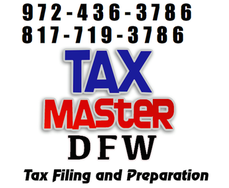Tax Preparation Blog
Types Of Tax Exchanges
by Tax Master DFW on 10/12/14
Title:
Types Of Tax Exchanges
Word Count:
1318
Summary:
Although the vast majority of exchanges occurring presently are delayed exchanges, let us briefly explain a few other exchanging alternatives.
Simultaneous Exchange
As mentioned previously, prior to Congress modifying the Internal Revenue Code as to exchanges and formally approving the concept of delayed exchanging, virtually all exchanges were of the simultaneous type. To qualify as a simultaneous exchange, both the relinquished property and the replacement property must...
Keywords:
#Arlington_Tax_Preparation, #Tax_Preparation, #Tx_Tax_prep, #Texas_Tax_Preparation, #Arlington_Tax_Prep, #Arlington_TX, #Tax_Prep, #DFW_Tax_Prep, #Tax_Filing, #Taxes, #Lewisville_Tax_Prep, #Lewisville_Tax_Preparation, #DFW_Tax_Preparation, #Arlington, #Tarrant_County, #Reduce_Taxes, #Tax_Refunds, #Pay_Taxes, #Tax_Help, #Bookkeeping, #DFW_Bookkeeping, #Investing, #tax_bookkeeping, #DFW, #Texas, #North_Texas, #Filing_Taxes, #1099, #W-2, #W-4
Article Body:
Although the vast majority of exchanges occurring presently are delayed exchanges, let us briefly explain a few other exchanging alternatives.
Simultaneous Exchange
As mentioned previously, prior to Congress modifying the Internal Revenue Code as to exchanges and formally approving the concept of delayed exchanging, virtually all exchanges were of the simultaneous type. To qualify as a simultaneous exchange, both the relinquished property and the replacement property must close and record on the same day.
Some investors still try to accomplish simultaneous exchanges, primarily to avoid or reduce the payment of multiple closing fees or exchange fees to a facilitator. There is significant danger and legal exposure in this attempt since many unforeseen events can cause the closing to be delayed on one of the properties, leaving the investor with a failed exchange and the obligation of taxes that would otherwise be deferred.
For example, if the properties are located in different counties, it is highly unlikely that the closing can take place on the same day. If two different title, escrow, closing firms or attorneys are involved, it is virtually impossible for both to have the funds to close in their possession on the same day. For instance, with "Good Funds” laws existing in many states, an escrow holder cannot disburse funds not actually in his possession. Further, in directing an escrow holder to disburse funds for the purchase of the replacement property, it could be contended by the IRS that the investor had what is considered "constructive receipt" of the proceeds of the sale, and therefore taxes on the gain would be due.
However, the 1031 regulations contain what is referred to as a "Safe Harbor" provision, which does provide that in the event a facilitator or intermediary is used in a simultaneous exchange, and the transaction proves not to be simultaneous, the exchange will not fail simply for that reason.
Improvement and Construction Exchange
In some cases, the replacement property requires new construction or significant improvements to be completed in order to make it viable for the specific purpose the Exchanger has intended for the property. Such construction or improvements can be accomplished as part of the exchange process, with payments to contractors and other suppliers being made by the facilitator out of funds held in a trust account. Therefore, if the replacement property is of lesser value than the relinquished property at the time of the original transaction, the improvement or construction costs can bring the value of the replacement property up to an exchange level or value which would allow the transaction to remain tax free.
Business or Personal Property Exchange
Although our discussion in this tutorial involves the typical exchange of real property, Internal Revenue Code Section 1031 does allow the exchange of many types of property other than real estate. Investors may exchange, for example, rail cars, trucks, ships, classic cars or livestock, among other assets. Therefore, business exchanges are a common transaction.
While the basic exchange rules are the same, certain complications arise in classifying the non-real estate assets into one of several categories or SIC classes so that they meet the associated like-kind requirements.
While this is a simple enough process for the experienced facilitator, it can be thoroughly confusing for the uninitiated Exchanger, making the selection of his Intermediary or facilitator extremely important to the successful structuring of the exchange.
If you desire additional information regarding business or personal property exchanges, please consult an experienced tax professional to first determine the classes of properties available to be exchanged. Then, remembering that all personal property must be exchanged within the same class (locomotive for locomotive, collectible art for collectible art, pizza oven for pizza oven, etc.), assign values for the various assets within that class. These collective values, will then reflect the value of the total exchange.
Also, some personal property and business items are not exchangeable. Most notable in this group are such items as goodwill or inventory.
Again, as mentioned above, do not undertake the planning of a business or personal property exchange without the assistance of an experienced tax professional. In any business exchange, the time and money you invest in planning will be well worth it when your transaction is deemed qualified.
Reverse Exchange
The reverse exchange is actually a misnomer. It represents an exchange in which the Exchanger locates a replacement property and wants to acquire it before the actual closing of the relinquished or exchange property. Since the Exchanger cannot purchase the replacement and later exchange into property that he already owns, he must find a method to acquire the replacement property and still maintain the integrity of his exchange. Reverses are typically accomplished in two formats based upon transaction logistics and the financing needs of the Exchanger.
The Scenario A strategy is utilized only when the Exchanger requires traditional financing to complete his acquisition of the replacement property. Since few lenders would lend dollars to the Exchanger with the facilitator on title, it is necessary for the facilitator to warehouse or hold the title to the relinquished property. In this approach, the exchange is complete at the moment the Exchanger accepts the title to the new replacement property. However, with the prospect of the exchange being complete, it is necessary to balance equities between relinquished and replacement, prior to closing. In other words, upon closing the replacement, there must be an equal amount of equity in the replacement property as is expected to come out of the later sale of the relinquished property. Then, at the time of the later sale of the relinquished or exchange property, any debt is retired and the Exchanger is repaid any dollars which he advanced for the replacement property acquisition.
In Scenario A, the facilitator, with the aid of a loan from the Exchanger, acquires the replacement property and warehouses or holds the property title until such time as the relinquished property is sold and the exchange can be completed.
At this point we need to insert several caveats regarding reverse exchanges. They tend to be more complicated than other exchanges and because they involve the holding of title by a facilitator, they require extensive planning. Also, since the reverse exchange strategy was specifically excepted from the Treasury Regulations, they should be considered an aggressive form of exchanging. Do not undertake a reverse exchange without the assistance of an experienced and knowledgeable facilitator or Intermediary.
Delayed Exchange
Generally, when one discusses exchanges, the type of exchange referred to is the delayed or Starker exchange. This term comes from the name of the Exchanger who was first challenged for a delayed exchange by the IRS. From this tax court conflict came the code change in 1984 that formally recognized the delayed exchange for the first time. As mentioned earlier, this is now the most common type of exchange.
In a delayed exchange, the relinquished property is sold at Time 1, and after a delay, the replacement property is acquired at Time 2. The following will represent the traditional rules and time constraints for completing a qualifying delayed exchange.
Like-Kind Property
Property that qualifies for exchange under Section 1031 must be "like-kind", which is defined in the Regulations as follows:
a) Property held for productive use in a trade or business, such as income property, or
b) Property held for investment.
Therefore, not only is rental or other income property qualified, so is unimproved property which has been held as an investment. That unimproved property can be exchanged for improved property of any type, or vice versa. Also, one property may be exchanged for several, or vice versa. This means that almost any property that is not a personal residence or second home is eligible for exchange under Section 1031. Even the vacation home that is used for that purpose part of the year, and is rented part of the year, is considered "mixed use" property and may be exchanged under 1031 for other mixed use property.
Use The Same Techniques The Rich And Famous To Avoid Taxes!
by Tax Master DFW on 10/12/14
Title:
Use The Same Techniques The Rich And Famous To Avoid Taxes!
Word Count:
516
Summary:
Everyone has heard about the actor or businessman who lives a jet-set lifestyle and 'pays no tax'? This article explains how everyone can benefit from the same 'secrets'.
Keywords:
#Arlington_Tax_Preparation, #Tax_Preparation, #Tx_Tax_prep, #Texas_Tax_Preparation, #Arlington_Tax_Prep, #Arlington_TX, #Tax_Prep, #DFW_Tax_Prep, #Tax_Filing, #Taxes, #Lewisville_Tax_Prep, #Lewisville_Tax_Preparation, #DFW_Tax_Preparation, #Arlington, #Tarrant_County, #Reduce_Taxes, #Tax_Refunds, #Pay_Taxes, #Tax_Help, #Bookkeeping, #DFW_Bookkeeping, #Investing, #tax_bookkeeping, #DFW, #Texas, #North_Texas, #Filing_Taxes, #1099, #W-2, #W-4
Article Body:
You've probably read in the newspapers of various celebrities and successful business who manage to avoid or at least substantially reduce their UK taxes ñ whilst a significant proportion of the general public are paying close to 50% of their income in tax. Well, there's nothing to prevent you using some of these techniques to slash your UK taxes as well, depending on your circumstances.
Here's some of the techniques that the Rich & famous use:
Make the most of your offshore status
People like Mohammad al Fayed make tremendous use of their non UK domiciled status. If you're an overseas national and were born overseas (typically your father will also have been a non UK domiciliary at the date of your birth) you can avoid paying any tax on your overseas income and capital gains. The main condition to this is that you need to keep the income or proceeds outside of the UK. As you'd expect though there are ways around this to enable some of the proceeds and income to be brought into the UK free of taxes.
Make the most of your spouses offshore status.
If you're lucky enough to have a husband or wife that is either non UK resident or non UK domiciled you can use their offshore status to your advantage. This is what Philip Green did (the billionaire owner of BHS). His wife is a resident of Monaco and he ensured that she extracted dividends from his UK companies free of UK (and overseas) tax. This saved him paying UK tax of around £200Million that he would have otherwise had to pay if he'd extracted the dividends.
Using a tax efficient holding company.
Famous bands such as U2 and the Rolling stones make use of some of the best offshore tax companies to avoid paying tax on much of their income. U2 for example used to fall within the Irish tax regime which had a longstanding tax exemption for artists. When this loophole was tightened up, they moved their holding company to the Netherlands to take advantage of tax free royalties. There are lots of other countries that can also offer tax efficient holding companies such as Spain, Denmark and Cyprus.
Using tax efficient trading companies.
Multinationals such as Coca Cola make good use of a string of offshore companies to ensure that they can redistribute profits within the group to reduce the overall 'effective' rate of corporation tax. (It is reducing this effective rate that is the main focus of many in house tax lawyers lives!)
Actually move overseas Celebrities such as James Blunt, Michael Schumacher and Boris Becker have all moved offshore to ensure they have only limited UK tax obligations. They've based themselves in Switzerland and are local residents. The beauty of Switzerland is the 'fiscal deal' which allows the tax liability to be fixed at an artificially low amount.
So there you have it ñ some ideas to get you thinking about how you could use the offshore tax planning techniques of the rich and famous. For more detailed articles on offshore tax prep visit www.wealthprotectionreport.co.uk
Tax Tips For eBay Sellers - Turning Personal Expenses Into Business Expenses
by Tax Master DFW on 10/11/14
Title:
Tax Tips For eBay Sellers - Turning Personal Expenses Into Business Expenses
Word Count:
458
Summary:
Few people realize that starting a side-business on eBay is actually a great way to save money on your taxes. The trick is to make sure you are putting all the additional expenses you incur against your additional income. Running an eBiz allows you to take numerous deductions that can add up to a lot of savings.
Deduct Your Home Office
By definition, if you are an eBay seller, you have a home office. You have to have a space that is used exclusively for business, whether i...
Keywords:
#Arlington_Tax_Preparation, #Tax_Preparation, #Tx_Tax_prep, #Texas_Tax_Preparation, #Arlington_Tax_Prep, #Arlington_TX, #Tax_Prep, #DFW_Tax_Prep, #Tax_Filing, #Taxes, #Lewisville_Tax_Prep, #Lewisville_Tax_Preparation, #DFW_Tax_Preparation, #Arlington, #Tarrant_County, #Reduce_Taxes, #Tax_Refunds, #Pay_Taxes, #Tax_Help, #Bookkeeping, #DFW_Bookkeeping, #Investing, #tax_bookkeeping, #DFW, #Texas, #North_Texas, #Filing_Taxes, #1099, #W-2, #W-4
Article Body:
Few people realize that starting a side-business on eBay is actually a great way to save money on your taxes. The trick is to make sure you are putting all the additional expenses you incur against your additional income. Running an eBiz allows you to take numerous deductions that can add up to a lot of savings.
Deduct Your Home Office
By definition, if you are an eBay seller, you have a home office. You have to have a space that is used exclusively for business, whether it is in your spare room or your basement. But having this allows you to take a percentage of your mortgage interest, your utility bills, your homeowner’s insurance, and your homeowner’s dues as deductions against your business. And if you use your home to store inventory, even if it does not have its own room, you can include that space in your deductions as well.
Deduct Your Children’s Pay
Rather than giving your kids allowances, pay them to help out with your business. You are moving income out of your tax bracket, and you can pay them up to $4,900 a year before they will have to pay taxes on it. Tax strategist Diane Kennedy, of http://TaxLoopHoles.com, says there are three rules to employing your child:
1. Have some kind of written job description.
2. Make sure they are keeping track of the time they actually work.
3. Pay them a reasonable wage.
Says Kennedy, Take a look at personal expenses and how they could become business expenses. Things like employing your kids, having a home office, maybe your car you are using to run errands; look at all the things you are spending money on now that could become business deductions.
How to Protect Yourself
You need to be able to prove your deductions are legitimate business expenses, so it is crucial you keep good paper work on everything. Track where your money is coming from and what your costs are, and have documentation to back it up. Should the government ever have questions, you will be glad you did.
Good record keeping will go a long way towards satisfying the IRS. But you can lessen your chances of getting audited in the first place by forming a corporation or an S-Corp. If you default to a sole proprietorship, you have a one in twelve chance of being audited. Incorporating also gives you certain tax advantages.
When done properly, selling on eBay allows you to save money on the back end with taxes. As Kennedy says, ìSo many people do not realize that just by having this little side business, they can actually immediately start paying lesser taxes. In fact, we say eBay tonight and pay less taxes tomorrow.
Tax Traps for New Real Estate Investors
by Tax Master DFW on 10/11/14
Title:
Tax Traps for New Real Estate Investors
Word Count:
845
Summary:
Real estate belongs in every investors portfolio, but make sure you don't fall into these common tax traps. So says CPA and bestselling author Stephen L. Nelson.
Keywords:
#Arlington_Tax_Preparation, #Tax_Preparation, #Tx_Tax_prep, #Texas_Tax_Preparation, #Arlington_Tax_Prep, #Arlington_TX, #Tax_Prep, #DFW_Tax_Prep, #Tax_Filing, #Taxes, #Lewisville_Tax_Prep, #Lewisville_Tax_Preparation, #DFW_Tax_Preparation, #Arlington, #Tarrant_County, #Reduce_Taxes, #Tax_Refunds, #Pay_Taxes, #Tax_Help, #Bookkeeping, #DFW_Bookkeeping, #Investing, #tax_bookkeeping, #DFW, #Texas, #North_Texas, #Filing_Taxes, #1099, #W-2, #W-4
Article Body:
Perhaps one should not be surprised that new real estate investors fall into the same tax traps again and again. Real estate burdens investors; especially new investors with some tricky tax accounting.
But just because some other newbie makes these mistakes, that does not mean you need to. You just need to know where the traps are so you avoid them. And here are the biggest real estate tax traps you do not want to fall into:
Tax Trap 1: Passive Loss Limitation
On paper at least, real estate often loses money. Even if the rent pays the mortgage and the operating expenses, the books still show a loss because you get to write off a portion of the purchase price through depreciation each year.
If a rental house that cost $275,000 breaks even on cash flow, for example, you might also get a $10,000 annual depreciation deduction. If your marginal tax rate is 28%, that depreciation should save you $2800 annually.
Sounds sweet, right? Well, it is or should be. Except that the U.S. Congress labeled real estate investment a passive activity and said that, except in a couple of special circumstances, you can not write off passive activity deductions unless overall you show positive passive income.
This passive loss limitation rule means that many real estate investors do not get to use tax saving deductions from real estate, or at least not annually.
Two loopholes, courtesy of Congress, do exist that let you write off deductions from real estate even if overall you show a loss from real estate investing. If you are an active real estate investor with adjusted gross income below $100,000, you can write off up to $25,000 of passive losses annually. (If your income is between $100,000 and $150,000, you get to write off a percentage of the $25,000. Ask your tax advisor for the details.)
Here is the second loophole: If you are a real estate professional, Congress says the passive loss limitation rule does not apply to you when it comes to real estate. A real estate professional, by the way, is ‘not’ someone who is licensed as an agent or broker. The law instead creates a time-based test: A real estate professional is someone who spends at least 750 hours a year and more than 50% of their time working as a real estate agent, broker, property manager or developer.
Tax Trap 2: Capitalization of Improvements
The next mistake that new real estate investors make? Thinking they can write off the amounts they spend to improve the property. Sometimes you can. Often you can not.
Here is why: Any expenditure that increases the life of the property or improves its utility needs to be depreciated over the next 27.5 years (if the property is residential) or over 39 years (if the property is nonresidential).
You can not, therefore, write off the money spent improving or renovating a house, except through depreciation.
I have seen new real estate investors in tears about this wrinkle. Some investor draws, say, $20,000 from his IRA or 401(k) to fix up some rental. He figures he will be able to write off the $20,000 as a tax deduction in the year improvements are made.
No way. Instead, he will have to write off the $20,000 at the rate of a few hundred bucks a year over the next three or four decades.
The trick with renovation, if you want to call it that, is to keep the property well maintained as you go. Repainting, new carpeting, general repairs; these items should all be all deductions in the year of expenditure (er, subject to the passive loss limitation rule discussed as the first tax trap.)
Tax Trap 3: Missing the Section 121 Exclusion
Here is the final tear-jerker. And I see it several times a year. Someone decides that rather than sell their principal residence when they ‘move up’ to a larger new home, they are going to turn the original home into a rental.
This is a disastrous decision most of the time because of Section 121 of the Internal Revenue Code . Section 121 says that if you have owned a home and lived in a home for at least two of the last years, you will not pay any tax on the first $250,000 of gain on the sale ($500,000 of gain in the case of someone who is married and filing a joint return).
By converting a principal residence to a rental property, you turn tax-free gain into taxable gain if you do not sell the property in the first three years.
Two quick notes about goofing up the Section 121 exclusion. If you do not have appreciation in your old principal residence, you are not losing any Section 121 benefit by converting to a rental.
Second, if you do have a lot of appreciation in your old principal residence and want to use that equity to acquire a rental property, consider this: Sell the old principal residence when you move out so the gain is excluded from taxable income. Then use the tax-free proceeds to purchase another rental, perhaps even the house next door.
The History of Income Tax
by Tax Master DFW on 10/11/14
Title:
The History of Income Tax
Word Count:
411
Summary:
They say death and taxes are the only two certain things in life. Alas, this was not always the case. Well, at least for the income tax.
Keywords:
#Arlington_Tax_Preparation, #Tax_Preparation, #Tx_Tax_prep, #Texas_Tax_Preparation, #Arlington_Tax_Prep, #Arlington_TX, #Tax_Prep, #DFW_Tax_Prep, #Tax_Filing, #Taxes, #Lewisville_Tax_Prep, #Lewisville_Tax_Preparation, #DFW_Tax_Preparation, #Arlington, #Tarrant_County, #Reduce_Taxes, #Tax_Refunds, #Pay_Taxes, #Tax_Help, #Bookkeeping, #DFW_Bookkeeping, #Investing, #tax_bookkeeping, #DFW, #Texas, #North_Texas, #Filing_Taxes, #1099, #W-2, #W-4
Article Body:
They say death and taxes are the only two certain things in life. Alas, this was not always the case. Well, at least for the income tax.
The History of Income Taxes
Our great nation came into existence in fits and starts. Following the revolt against the British, a federal government was elected and the fun began. This ‘fun’ inevitably led to the situation where not everyone could agree on what the United States should stand for, much less what laws should be enacted. As a result, there was no federal income tax for nearly 100 years. Ah, the good ole days!
If there was no income tax during this period, you are probably wondering how the government functioned. It did so by collecting use and sales taxes. Taxes were charged on liquor, tobacco and imports to mention just a few. Many people in our modern society would like to return to just such a system.
Contrary to popular notions, the first income tax was not put into law in the early 1900’s. In fact, the first President to institute an income tax was Abraham Lincoln. In 1861, President Lincoln and Congress passed an income tax law to assist with funding the Civil War with the south. When the war came to an end, the tax was phased out. Imagine a tax being phased out now? That should bring a tear of laughter to your eye.
The income tax as we know it was first instituted in 1913. Congress passed a law establishing a graduated tax rate of one to seven percent on all income taxes. I can say honestly and truthfully that I would kill to pay one percent in taxes these days. Heck, I am willing to take on the burden of paying seven percent!
In establishing the income tax system, the Constitution was amended to add a 16th Amendment. This Amendment gave the federal government the right to collect taxes. The politicians primarily responsible for this were President Roosevelt and President Taft. I mention two Presidents because the bitter debate over the subject took some time to work out. Nonetheless, this is how we came to be burdened by the income tax in the United States.








